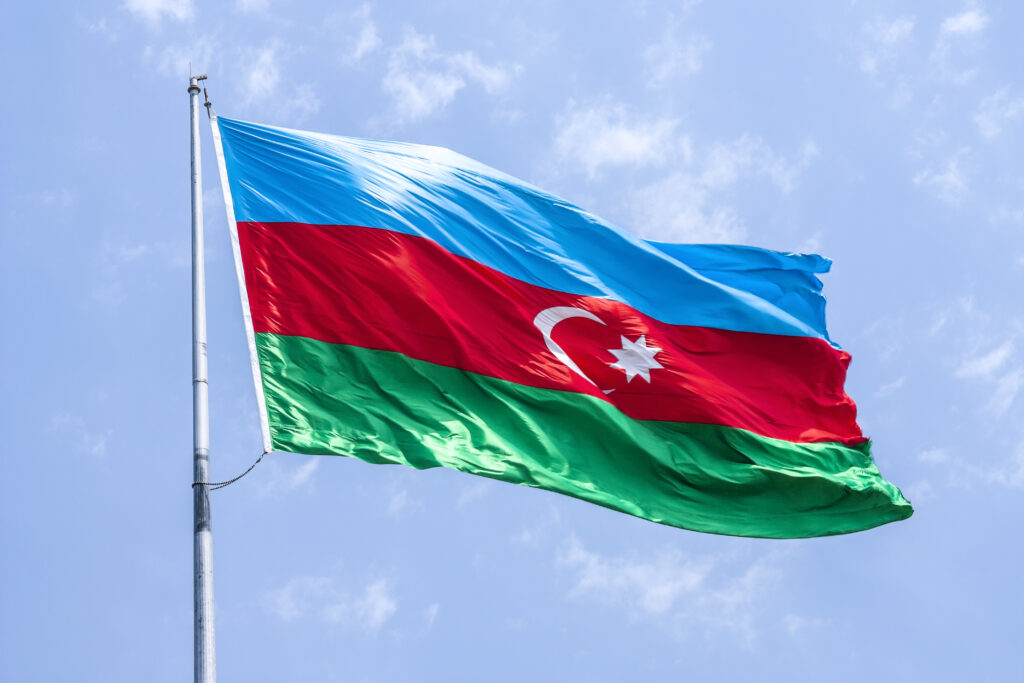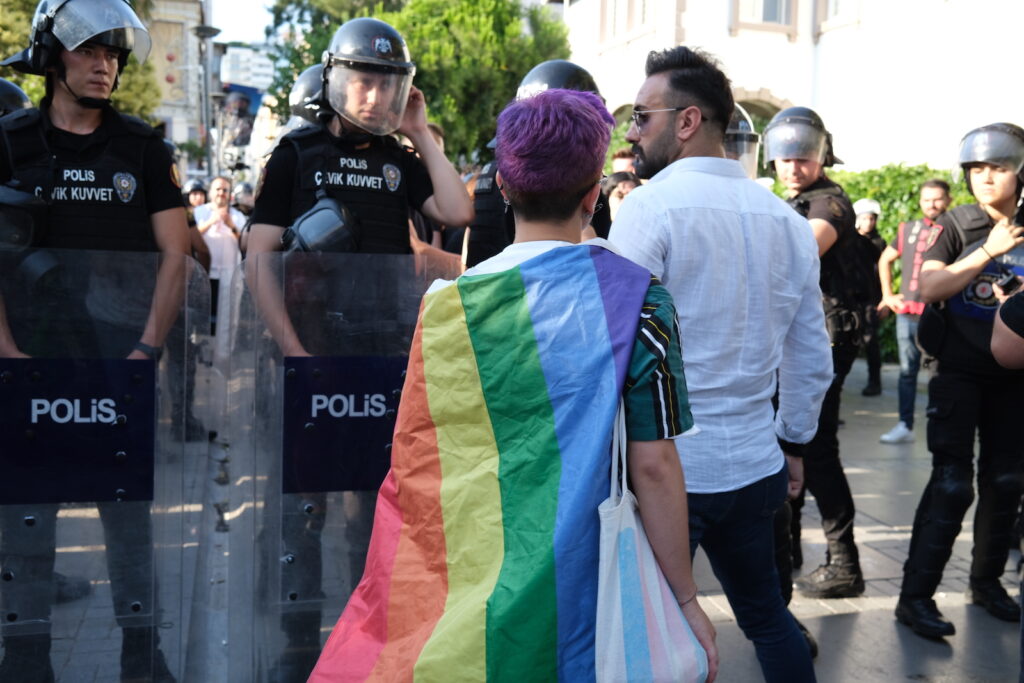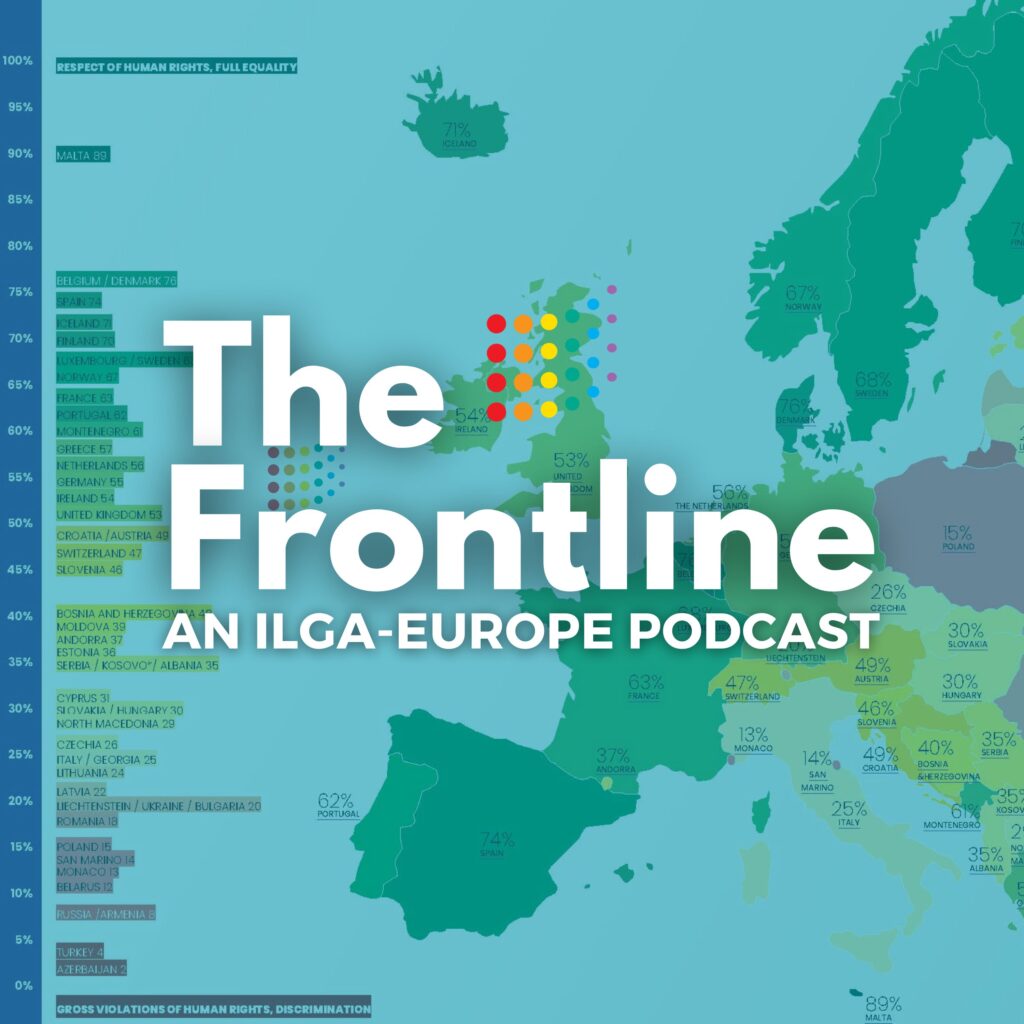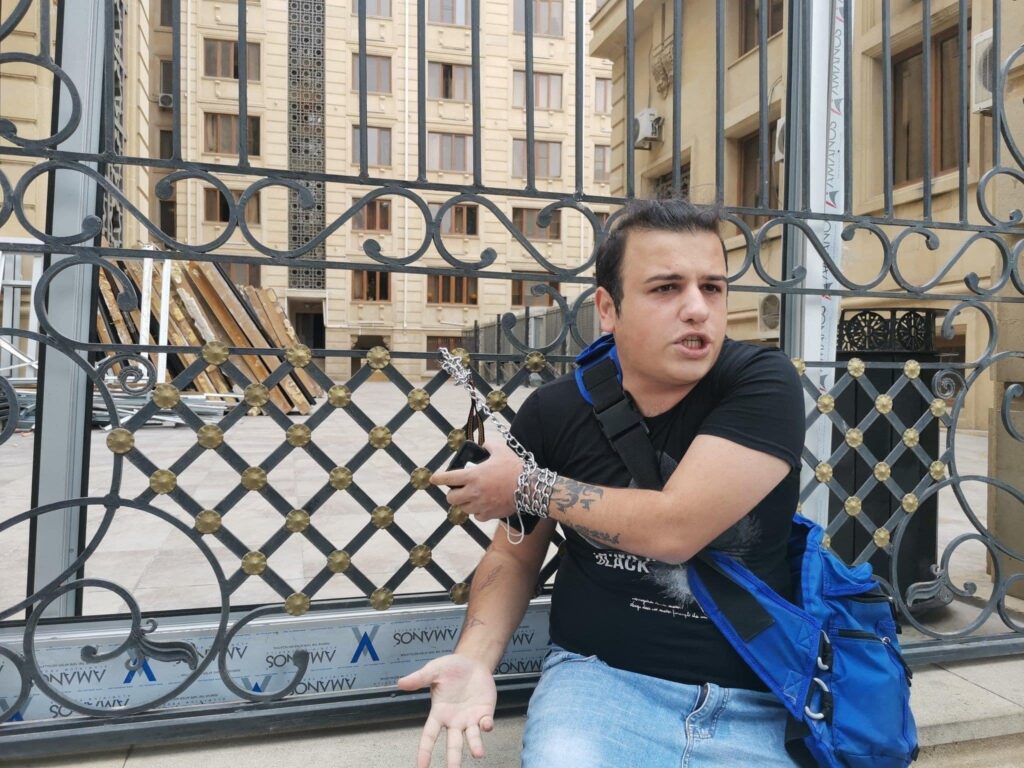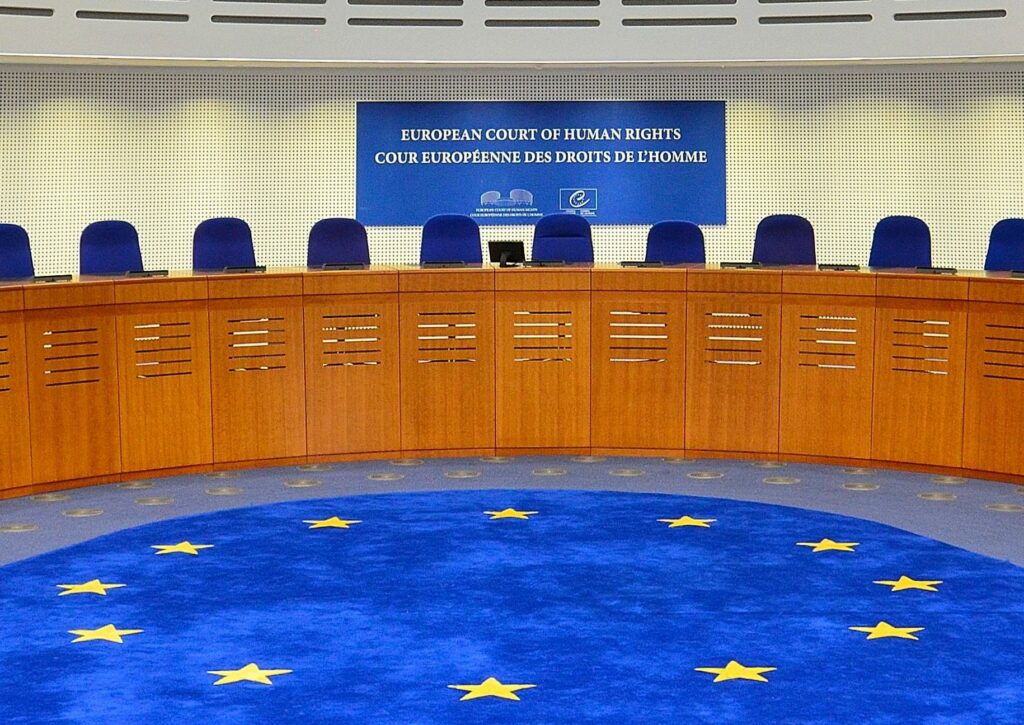Azerbaijan
Categories Score
The full bar chart stands for 100%, and is filled by the country category score. The colour display uses the traffic light palette, with Green representing a score closer to 100% and Red a score closer to 0%.
ASYLUM
This category looks into laws that expressly include SOGISC as a qualification criteria for seeking asylum. We also take into account other legislation, policies, instruction or positive measures by state actors that are related to asylum addressing the needs and rights of LGBTI asylum seekers and refugees.
Criteria Compliance Ratio
Each pie charts stands for a category and is divided in slices by criteria. When a country complies with a criteria – fully or in some regions – the slice is coloured.
Keep in mind the criteria have different weighting factor within a category; for example, the criteria Prohibition of medical intervention without informed consent (intersex) stands for half (2.5%) of the INTERSEX BODILY INTEGRITY category weighting factor (5%). Meaning that even if a country can only comply with this specific criteria within the category (1/4 total criteria) the category scores 50%.
More information on the categories and criteria weighting factors here.
Category & Criteria Table
The table lists detailed information and insights on legislation supporting each criterion status. Please use the filters for in-depth analysis.
n/a = not applicable, meaning the criteria didn’t exist in the previous Rainbow Map edition (PROGRESSION column)
- Complies
- Applicable in some regions only
- Does not Comply
RECOMMENDATIONS
In order to improve the legal and policy situation of LGBTI people in Azerbaijan, ILGA-Europe recommend:
- Establishing an equality body with explicit mandate on SOGIESC grounds (sexual orientation, gender identity, gender expression, sex characteristics).
- Introducing policies tackling hate crime with express mention of SOGIESC (sexual orientation, gender identity, gender expression, sex characteristics) grounds.
- Introducing policies tackling hate speech with express mention of SOGIESC (sexual orientation, gender identity, gender expression, sex characteristics) grounds.
Annual Review of AZERBAIJAN
In our Annual Review of the Human Rights Situation of LGBTI People in Europe and Central Asia, we examine the advances made and provide concrete examples of on-the-ground situations at national level country-by-country in the 12 months from January to December 2024.
Read our Annual Review of Azerbaijan below for more details and stories behind the Rainbow Map. You can also download the Annual Review chapter (.pdf) covering Azerbaijan.
-
In March, following a yearly Women’s Day march where protesters requested effective access to trans healthcare, the government- affiliated Real TV channel aired a report targeting LGBTI people with discriminatory hate speech.
-
In March, the murder of a trans woman in Baku was met with a police response that lacked a comprehensive investigation process, sparking community-wide requests for a thorough examination.
-
A new policy on equality, diversity, and inclusion was adopted by various universities in Azerbaijan, explicitly including sexual orientation and gender as grounds for protection. The policy aims to ensure clear, fair, and accessible services at university, guarantee that people are treated equally, receive the respect and dignity that they deserve, and that their diversity is acknowledged.
-
In May, a woman from Krasnoyarsk forcibly transported her 18-year-old daughter to Baku, confiscating her documents, phone, and antidepressants after she revealed her sexual orientation. Her current whereabouts are unknown.
-
In April, the ECtHR issued a ruling on several applications against Azerbaijan concerning LGBTI rights. These applications stemmed from events in September 2017, when Azerbaijani police arrested multiple LGBTI people under various pretexts, leading to their mistreatment, illegal detention, and discrimination. In 2019, Azerbaijan acknowledged the violations and offered compensation through a unilateral declaration. However, the applicants expressed dissatisfaction, citing inadequate compensation and acknowledgment. The ECtHR reviewed the government’s submission and removed 19 applications from its list, stating that further examination was unnecessary given the government’s admission and compensation offer.
-
On 7 February, snap presidential elections took place in Azerbaijan. Understanding the importance of LGBTI representation and active engagement in such important electoral events, Nafas facilitated the involvement of LGBTI people in the monitoring of the elections, contributing to the fight for both electoral transparency and LGBTI political representation.
Despite the intention to foster inclusivity in electoral processes, the efforts of LGBTI observers were met with backlash from local media, which accused them of staging provocations and smearing the election process. An article published by Axar.az released four hours before the election, warned about “groups planning to sabotage election day,” while singling out Nafas as one of the leaders of such groups. On 9 February, in another article published by Musavat, Nafas was exclusively targeted and accused of being “the main interlocutors for smearing the election process.” Following the backlash similar events occurred during the parliamentary elections which were held on September 1.
Although there was no such plan of observation by any LGBTI groups in the country, an article titled “Rainbow” Observers – What and Who Do They Serve? was published on the Azvision media platform just days before the election and warned against the same scenario.
-
In June, discussing the package proposal being considered by the legal committee of the Georgian parliament on the outlawing of alleged ‘LGBTI propaganda’, a well-known Azerbaijani lawyer, Akram Hasanov expressed his support for more prohibitive norms against LGBTI rights. Hasanov claimed that “Azerbaijan should refer to Georgian practice in this matter” and advocated for a similar approach to be implemented worldwide.
In July, Georgia’s anti-LGBTI draft law caused political discussions in Azerbaijan, with pro-government media contributing to the creation of an unofficial network of public officials and relevant figures in the Azerbaijan context who share a same opposition to LGBTI rights.
In September, discussing Georgia’s anti-LGBTI draft law being adopted in the 2nd hearing by the Georgian parliament, a well- known Azerbaijani sociologist, Elchin Bayramli, expressed his support. Bayramlı, while advocating for legislative and policy measures to counter so-called “LGBTI propaganda,” proposed harmful actions targeting LGBTI people, including identifying and forcibly confining them. He also claimed that LGBTI advocacy was directed and financed by Azerbaijan’s “enemies” in global circles.
The full Annual Review for 2025 is available here.


